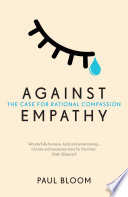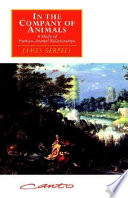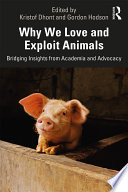Description
Comment comprendre pourquoi on a tant de préjugés sur les animaux, pourquoi on les dénigre systématiquement ? Pourquoi on est beaucoup plus stressé.e en voyant souffrir un chat qu’un poisson ? Pourquoi on a autant de facilité à débrancher l’empathie quand les animaux sont très différents de nous ? Comment expliquer la violence et la domination des humains sur les autres animaux ? Qu’est-ce qui se passe dans notre tête quand on les mange, pour se déresponsabiliser ou ne pas les voir autrement que comme de la nourriture ou comme de simples objects ? Pour éclairer ce qui se passe dans notre cerveau face aux animaux, j'ai reçu Laurent Bègue-Shankland, chercheur en psychologie sociale et l'un des seuls spécialiste de la psychologie des relations humains-animaux et du spécisme en France ! Il a publié en 2022 un ouvrage passionnant qui fait le tour des recherches actuelles sur ces questions : Face aux animaux. Nos émotions, nos préjugés, nos ambivalences. aux éditions Odile Jacob. Bonne écoute !
Crédits
Comme un poisson dans l'eau est un podcast indépendant créé et animé par Victor Duran-Le Peuch. Charte graphique : Ivan Ocaña Générique : Synthwave Vibe par Meydän Musique : Sound Architect par Glitch
4 livres cités :
Against Empathy · The Case for Rational Compassion Paul Bloom

Brilliantly argued, urgent and humane, Against Empathy overturns widely held assumptions to reveal one of the most profound yet overlooked sources of human conflict.
ISBN : 9781473511385 · publié le 2 février 2017
Description complète et liste des 1 épisode(s) qui le citent
In a divided world, empathy is not the solution, it is the problem. We think of empathy – the ability to feel the suffering of others for ourselves – as the ultimate source of all good behaviour. But while it inspires care and protection in personal relationships, it has the opposite effect in the wider world. As the latest research in psychology and neuroscience shows, we feel empathy most for those we find attractive and who seem similar to us and not at all for those who are different, distant or anonymous. Empathy therefore biases us in favour of individuals we know while numbing us to the plight of thousands. Guiding us expertly through the experiments, case studies and arguments on all sides, Paul Bloom ultimately shows that some of our worst decisions – in charity, child-raising, criminal justice, climate change and war – are motivated by this wolf in sheep's clothing. Brilliantly argued, urgent and humane, Against Empathy overturns widely held assumptions to reveal one of the most profound yet overlooked sources of human conflict.
Cité dans 1 épisode(s) :In the Company of Animals · A Study of Human-Animal Relationships James Serpell

This new edition of In the Company of Animals has been substantially revised and updated to take into account developments in research since the first edition was published in 1986.
ISBN : 9780521577793 · publié le 13 août 1996
Description complète et liste des 1 épisode(s) qui le citent
What purpose, if any, do pets really serve? Are they simply an outlet for misplaced love? Or four-legged friends who help us to satisfy vital emotional needs? Whatever they are, when we elevate pets to the status of social companions, we undermine the distinction between human and non-human. In other words, pets force us to confront the moral contradictions inherent in our treatment of animals in general. Pursuing this idea to its logical conclusion, the author uncovers a fascinating and disturbing trail of myths, evasions and double standards which humans have used since earliest times to justify their subjugation of nature and other life forms. Through an exploration of the phenomenon of pet-keeping across history and between cultures, this thought-provoking study reassesses our relationships with animals and the natural world. This new edition of In the Company of Animals has been substantially revised and updated to take into account developments in research since the first edition was published in 1986.
Cité dans 1 épisode(s) :Some We Love, Some We Hate, Some We Eat [Second Edition] · Why It's So Hard to Think Straight About Animals Hal Herzog
![Some We Love, Some We Hate, Some We Eat [Second Edition] - Hal Herzog](/images/books/hal-herzog-some-we-love-some-we-hate-some-we-eat-second-edition-9780063119291.jpg)
“A fascinating, thoughtful, and thoroughly enjoyable exploration of a major dimension of human experience.”— Steven Pinker, author of How the Mind Works A maverick scientist reveals the inconsistent and often paradoxical ways humans ...
ISBN : 9780063119291 · publié le 7 décembre 2021
Description complète et liste des 1 épisode(s) qui le citent
A maverick scientist who co-founded the field of anthrozoology offers a controversial, thought-provoking, and unprecedented exploration of the psychology behind the inconsistent and often paradoxical ways we think, feel, and behave towards animals. How do we reconcile our love for cats and dogs (and rabbits, snakes, hamsters, gerbils, and goldfish) with our appetite for hamburgers and chicken breast and our use of medications that have been tested on lab mice? Why do so many of us—as meat eaters, recreational hunters and fishermen, and visitors of zoos and circuses—take the moral high ground when it comes to condemning activities like cockfighting? And why are dogs considered pets in America but dinner in Korea? With Some We Love, Some We Hate, Some We Eat, Hal Herzog offers a lively and deeply intelligent look inside our complex and often paradoxical relationships with animals. Drawing on over two decades of research in the interdisciplinary field of anthrozoology, the science of human-animal relations, Herzog examines the moral and ethical decisions we all face when it comes to the furry and feathered creatures with whom we share this planet. Alternately poignant and laugh-out-loud funny, Some We Love, Some We Hate, Some We Eat takes readers on a highly entertaining and illuminating journey through the full spectrum of human-animal relations, relating Dr. Herzog’s groundbreaking research on animal rights activists, cockfighters, professional dog show handlers, veterinary students, biomedical researchers, and circus animal trainers. Through psychology, history, biology, sociology, cross-cultural analysis, current animal rights debates, and the morality and ethics surrounding the use and abuse of animals, Herzog carefully crafts a seamless narrative composed of real life anecdotes, academic and scientific research, cross-cultural examples, and his own sense of moral confusion. Combining the intellectual rigor of Michael Pollan’s The Omnivore’s Dilemma with the wry observation of Bill Bryson’s A Walk in the Woods, Herzog offers a refreshing new perspective on our lives with animals—one that will forever change the way we look at our relationships with other creatures and, in so doing, will also change the way we look at ourselves.
Cité dans 1 épisode(s) :Why We Love and Exploit Animals · Bridging Insights from Academia and Advocacy Kristof Dhont, Gordon Hodson

This unique book brings together research and theorizing on human-animal relations, animal advocacy, and the factors underlying exploitative attitudes and behaviors towards animals. Why do we both love and exploit animals?
ISBN : 9781351181426 · publié le 8 novembre 2019
Description complète et liste des 1 épisode(s) qui le citent
This unique book brings together research and theorizing on human-animal relations, animal advocacy, and the factors underlying exploitative attitudes and behaviors towards animals. Why do we both love and exploit animals? Assembling some of the world’s leading academics and with insights and experiences gleaned from those on the front lines of animal advocacy, this pioneering collection breaks new ground, synthesizing scientific perspectives and empirical findings. The authors show the complexities and paradoxes in human-animal relations and reveal the factors shaping compassionate versus exploitative attitudes and behaviors towards animals. Exploring topical issues such as meat consumption, intensive farming, speciesism, and effective animal advocacy, this book demonstrates how we both value and devalue animals, how we can address animal suffering, and how our thinking about animals is connected to our thinking about human intergroup relations and the dehumanization of human groups. This is essential reading for students, scholars, and professionals in the social and behavioral sciences interested in human-animal relations, and will also strongly appeal to members of animal rights organizations, animal rights advocates, policy makers, and charity workers.
Cité dans 1 épisode(s) :9 autres références :
- Article de l'échelle de spécisme par Caviola et alia (pubmed.ncbi.nlm.nih.gov)
- Article précis de Dhont sur la diminution des préjugés quand on réduit la distance avec les animaux (pubmed.ncbi.nlm.nih.gov)
- Conférence de Kristof Dhont sur les corrélations entre spécisme, racisme et sexisme (video)
- Étude du Muséum sur le gradient d'empathie (www.nature.com)
- Étude sur la démentalisation des animaux qu'on mange (pubmed.ncbi.nlm.nih.gov)
- Étude sur la plus ou moins forte dissociation selon tête coupée ou pas (pubmed.ncbi.nlm.nih.gov)
- L'expérience de Milgram (wikipedia)
- Le concept de 'banalité du mal' de Hannah Arendt (wikipedia)
- Vidéo du dispositif de l’expérience du robot-poisson (video)
 Comme un poisson dans l’eau
Comme un poisson dans l’eau
